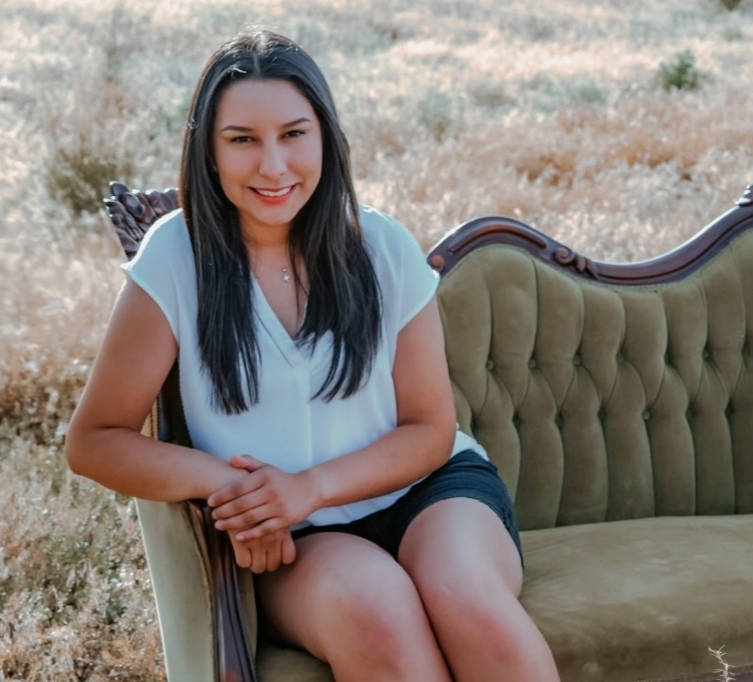Natalia

Natalia is a third-generation Hispanic American. She has lived in Idaho with her family her whole life and currently attends Liberty Charter in Nampa.
As Natalia shared with us, she is only one of a handful of Hispanic students attending her charter school. The lack of Hispanic representation among her classmates and within her school’s staff has made Natalia feel isolated. This has also made her feel unrepresented when it comes to issues of racism and microaggressions that she and her Latina classmates have faced in the classroom. Natalia also told us how she feels safer in school without the presence of police and hopes her school can increase representation and support for students facing discrimination.
Natalia is almost a senior and will be graduating with her associate degree. She plans to attend the College of Idaho to pursue a degree in education.
Have you ever had any experiences where you felt like you were treated differently in school because you are Latina?
I’ve gone [to Liberty Charter] since the first grade. I enrolled there because my dad went there and my aunt graduated from there, as well. There are only three Hispanic students in my class, all of them female, and I have brought this up before in school.
I’ve received several comments about my race. One kid in my class told me “Why don’t you just go jump back over the border?” That made me really mad--I’m a third-generation Hispanic American. My teacher happened to be Hispanic too, and they were just in shock after that comment. And although it seemed like my teacher spoke to that student, they didn’t get into a lot of trouble because that student’s parent is also a teacher at the school. This student has also told me other racist comments and there are no repercussions.
Another student told me that if I cut my hair short, I would look like Dora the Explorer. Yet another student told me that I am like a “coconut”--brown on the outside, white on the inside.
I've also had experiences where teachers say racist comments, and I have to raise my hand to explain why what they said came off as racist. For example, an older teacher once came up to my Latina friend and asked her if she was an exchange student and what country she was from. My friend responded that she had been born in the United States and that shocked the teacher. When this has happened, teachers do generally apologize and try to be more cautious about what they say.
Do you feel represented in your school?
We only have one male Hispanic teacher, and he is retiring this year.
It's definitely hard to not have representation in school. You want to have that teacher that you can talk to and feel comfortable expressing your concerns, knowing that they'll understand where you are coming from. This Hispanic teacher was most certainly that for a lot of students, especially for the exchange students. They all went to him.
I don't really feel culturally represented in school. Our school tries to celebrate holidays, and they'll celebrate what they think are Hispanic holidays, like Cinco de Mayo, but most Hispanic families don't celebrate that.
Have you ever had any interactions with law enforcement in your school?
We do not have school police in our school. I think because it would have to come out of the school’s budget and the state would not fund it.
Part of me likes that we don't have school police because I feel like sometimes it makes things worse. For example, kids of color will start to feel more unsafe and feel like there is a target on their back compared to the white students.
How do you think Latino students would feel better supported in your school?
For me, if there were more Hispanic students in my class, I would feel more welcome. Having only three [Hispanic students] out of more than 40 students, and everyone else being mostly white, is so different. I play basketball and sometimes we play against the schools in Wilder, where there are a lot more Hispanic students. I am able to connect a lot more with students there because of that.
I think we would also be better supported if teachers would actually do something when we tell them other students are telling us racist comments. They tell us that they will talk to the student, but that doesn't do much and the comments continue.
Every person is capable of doing whatever they like. You shouldn't base someone's talent on their race, whether they are White or Mexican.
The Education Equity for Latinx Students project started in the fall of 2022 as part of our efforts to expand racial justice work on behalf of Idaho students, beginning with Latinx communities.
READ MORE STORIES AND LEARN ABOUT THE EDUCATION EQUITY FOR LATINX PROJECT
